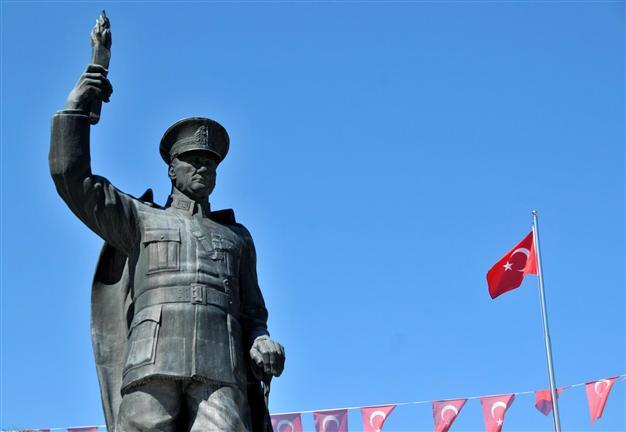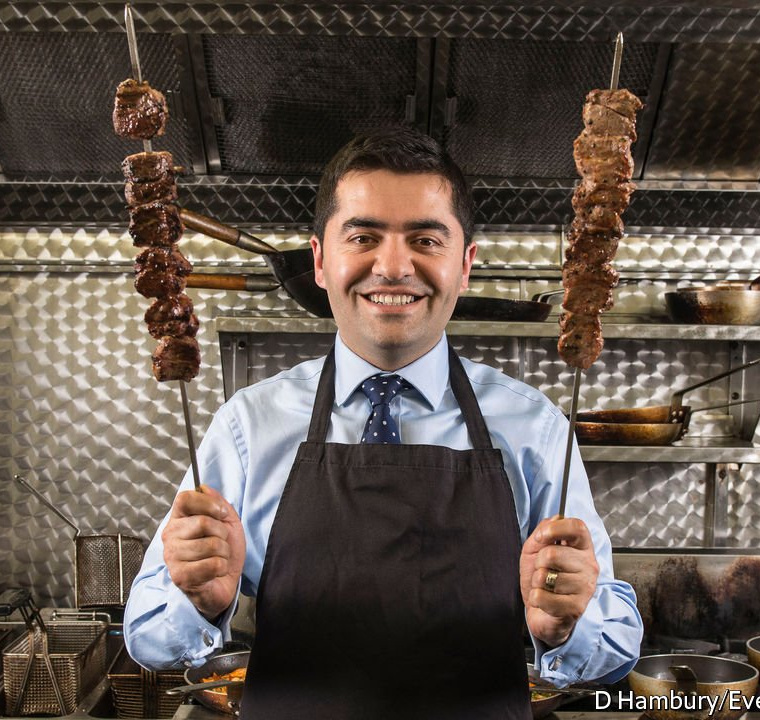Prior to this year’s failed coup, Turkey’s most recent coup took place in 1997 and was known as a postmodern or ‘soft’ coup. There was no military presence on the streets or in the air, yet the Turkish army put enough pressure was on the coalition government to cause the Islamist leader of the Welfare party prime minister Necmettin Erbakan to resign. His party was subsequently disbanded by the constitutional court on the basis that it violated the secular principles of the Turkish Republic.
The 1980 coup was led by the military, as the county was in ‘chaos’ due to mass uprising by leftist youth movements and Kurdish political mobilisation (notably the PKK founded in 1978). General Kenan Evren took power and under his presidency used excessive force and mass imprisonment of political activists, trade unionists and other progressives in the county, to reorganise and ‘stabilise’ the country – ultimately handing back power to ‘civilian’ legislators. Before Recep Eroğan’s Justice and Development party (APK) came to power in 2002, Turkey’s only period of great instability was in the 1990s due to the Kurdish insurgency and government’s harsh treatment of its Kurdish population, increasing human rights abuses and limited direct foreign investment.
This year’s failed coup strays from the norm in the sense that those behind it acted not on behalf of the whole army but a small faction within it. They were denounced by Erdogan as ‘Gulenists’ – supporters of banned opposition Islamic cleric Fetullah Gulen – not based in the traditional defence of Turkish nationalism and secularism. Most notable of all is that, unlike Turkey’s most recent military coups, this one failed.
In its aftermath, the crackdown and imprisonment of opposition academics and left-leaning intellectuals was reminiscent of coups past. Though the government is currently focused on rightwing Gulenist supporters, my fear is that all critics of the AKP government shall soon be subject to such treatment. This is particularly worrying given talk of reintroducing capital punishment.
Two paths presented themselves to Edrogan in the aftermath of the coup. He could have consolidated the country – as all opposition groups were united against the group – but instead he chose to alienate Kurdish parties by shunning them from strategic talks at the presidential palace, choosing instead to enter into alliances with ultranationalist parties.
Relations have been strained with the international community for some time now and should talks of reinstating the death penalty come to fruition this will mark the end of accession talks with the European Union. Relations with the United States are equally frosty, following diverging views in Syrian intervention policy. With calls to extradite Gulen from his home in Pennsylvania, along with conspiracy theories circulating in the Turkish press that American general John Campbell is the mastermind behind the coup, the souring of US-Turkey relations paves the way for Turkish rapprochement with Russia. For extradition to happen, the Turkish government will need to provide hard evidence proving Gulen’s involvement in the coup. Additionally, extradition is a lengthy process and may take years, it appears the Turkish government is applying political pressure to get Fethullah Gulen extradited.
Given Turkey’s history, another coup is not unlikely. For some, Turkey experienced a ‘civilian coup’ in June 2015 after the general election in which the Erdogan’s Justice and Development party lost their majority and chaos ensued as conflict between the Turkish state and the significant Kurdish minorities came to a head. It was only after the bombing in Ankara, when Erdogan immediately called new elections and secured a majority amongst this period of chaos. After the most recent failed military coup, Erdogan should be encouraged to use this opportunity to build bridges, peacefully resolving the issue of the Kurdish question and confirming democratic rule of law. Unfortunately, the opposite has materialised, with the suspension of the European Convention of Human Rights and reports of mass torture and rape of coup conspirators.
There is reason to believe Turkey will become a much more violent country in the near future. With the increase in terrorist attacks by Islamic State targeting Kurdish and other civilians in the country, it is clear that the ultimate aim of Islamic State is to plant the seeds of civil war in Turkey. By calling the masses to the streets, many believed to be people with Islamist and Jihadi sympathies, Erdogan has endangered liberal-leaning and ethnic or religious minorities in Turkey – mobs have already attacked predominantly ethnic and religious minority neighbourhoods.
Having supported the democratically elected government of Turkey against the coup, Europe’s governments now find themselves in tenuous position – witnessing a clampdown on dissidents, Kurds, human rights and minority rights. An independent judiciary is needed in Turkey lest the opposition find itself discriminated against and unlawfully imprisoned. This is not the mandate Erdogan promised in 2002 – he has chosen a far more dangerous track.
There is certainly a case put forward by Prof. Dr Yilmaz Esmer, that Turkey is increasingly becoming a democracy without democrats. Despite not disputing the legitimacy of AKP’s election, the party is not using its mandate to build the institutions a democratic country needs. Instead, they are guilty of they accuse the Gulenists ‘terrorists’ of doing – infiltrating and filling important positions in Turkey’s institutions with people sympathetic to its political position.
Erdogan is the democratically elected leader of the country and the de facto leader of the AKP. Should he go for the executive presidency, he will become the head of state and the army simultaneously – in doing so becoming the single most powerful person in Turkish history. Given what we have seen so far, with all the changes Erdogan has made and the allies he keeps, this could have significant negative implications for the rest of the world.





